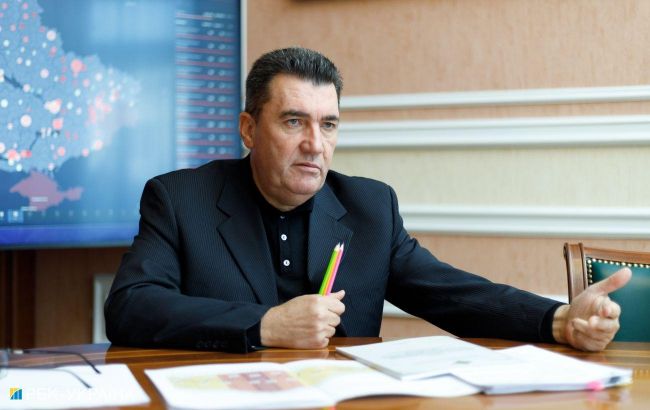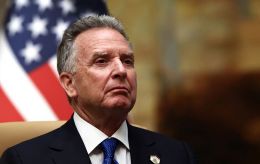False experts: Russia trying to set up new covert network to destabilize Ukraine
 Secretary of the National Security and Defense Council of Ukraine Oleksiy Danilov (Vitalii Nosach, RBC-Ukraine)
Secretary of the National Security and Defense Council of Ukraine Oleksiy Danilov (Vitalii Nosach, RBC-Ukraine)
Russia is trying to establish a new covert network in Ukraine with the help of various pseudo-experts to destabilize the situation in the country, according to the Secretary of the National Security and Defense Council of Ukraine, Oleksiy Danilov.
"The only chance for Russia to defeat Ukraine is to sow division and plunge Ukrainians into internal confrontation, as the Kremlin has successfully done over the past decade — dividing Ukraine into factions, creating Russian proxy parties, corrupting politicians, and falsifying history," he wrote.
According to him, in recent years, thanks to the active efforts of Ukrainian security forces, the largest-scale cleansing of Russian agents has been conducted. However, the aggressor country will continue to try to "grow new heads in place of the ones cut off."
"At present, there are clear signs that the Russian FSB is actively attempting to form a new covert network, placing great hopes on it. In the future, this involves a political project oriented towards pro-Russian populations, and simultaneously, there is an information campaign aimed at destabilizing the internal situation in Ukraine," the official noted.
Danilov says that the signs of such activities include a sharp increase in various "experts," "intelligence actors," and other types of fraudsters promoting the Russian agenda in the Russian language.
He notes that these actors claim that the counteroffensive is a supposed "failure," hint at the need to reconsider the goals of the war (no longer limited to the borders of 1991), provide advice on how to fight to the military, spread false insights about "conflicts" among military and political leadership, call for accepting "good Russians," and ultimately suggest the need to negotiate with the Russian Federation.
The secretary adds that Ukrainian law enforcement agencies are closely monitoring such hostile actions, detecting and putting an end to them.
Ukrainians are advised to keep an information hygiene to avoid being influenced by Russian disinformation.
In the Ukrainian media space, there are so-called "experts" who criticize the actions of the military during the counteroffensive or call for dialogue with the aggressor country. For example, former non-staff advisor to the President's Office, Oleksiy Arestovych, recently criticized the government's actions, citing "incompetence," particularly in the context of the counteroffensive, and called for elections in Ukraine.

